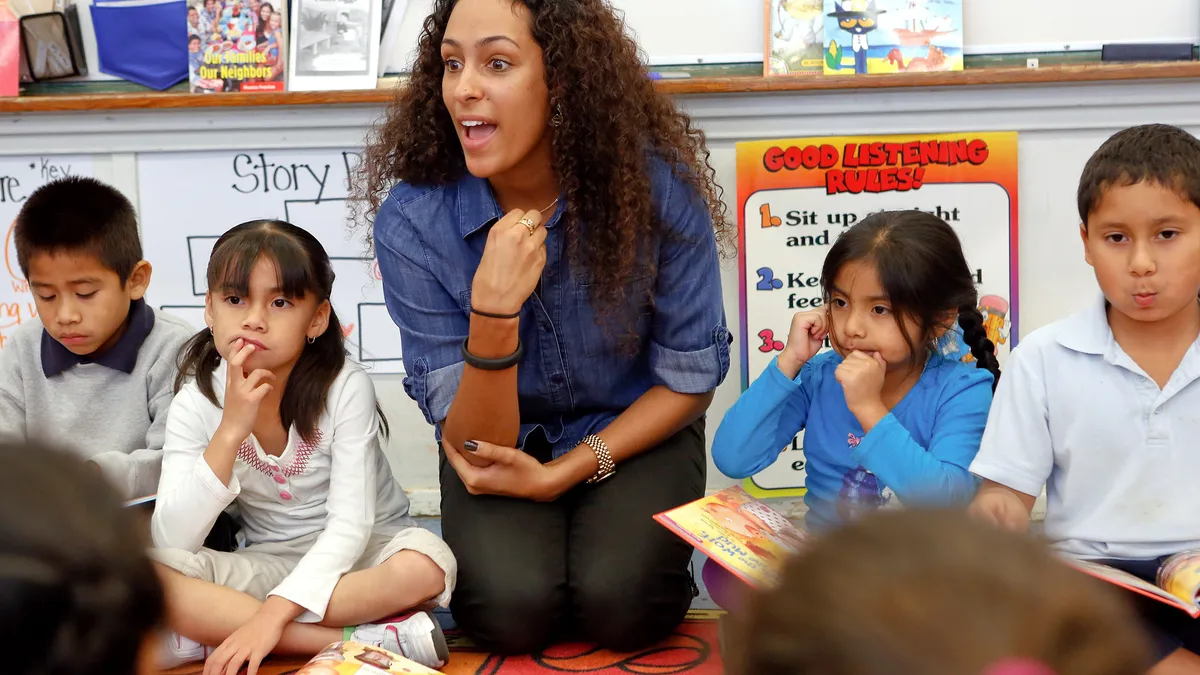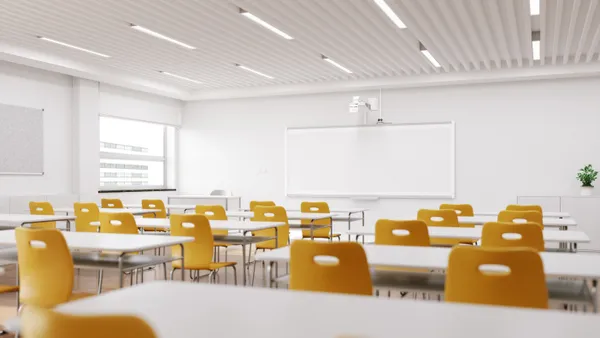Dive Brief:
- Schools and universities share the responsibility for preparing future teachers to enter the profession, according to a report released Wednesday by the American Association of Colleges for Teacher Education’s Clinical Practice Commission.
- A two-year effort, the commission’s work focused on bringing some common understanding and definitions to the classroom experiences aspiring teachers need to be “learner ready” as well as the roles that PK-12 educators play in supporting their development.
- The report refered to a “third space” in which schools and universities work together to create clinical experiences for teaching candidates, but added that clear structures are necessary because these partners operate under different rules and expectations. Schools should take candidates’ needs into consideration when planning curriculum and allow them to contribute to classroom instruction, the commission said. The authors also highlighted the need for “boundary-spanners” — PK-12 educators who work in a hybrid role as coaches and mentors to teaching candidates and communicate regularly with university-based teacher educators.
Dive Insight:
The report alludes to growing demands on teachers in recent years that have “led to a decline in the number of students pursuing the teaching profession as well as a decrease in the overall level of job satisfaction and sense of autonomy for many teachers.” The authors concluded that educators should take the lead in renewing their profession, and that creating high-quality clinical practice experiences for the next generation of educators is one way to do that.
They also pointed to paid residencies for beginning teachers as a way to ease the financial burdens on candidates still in college and attract more students into the field. A report released last fall by the Bank Street College of Education suggested that more schools could afford teacher-paid residency or “co-teaching” programs if they consider using funds they have after staffing all their classrooms or redirect some funds otherwise used for instructional support or supervision.














